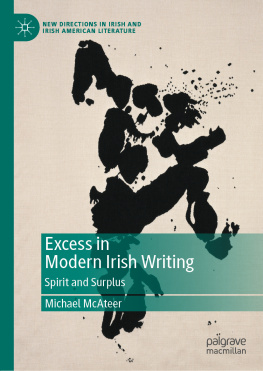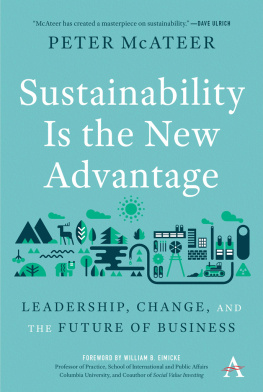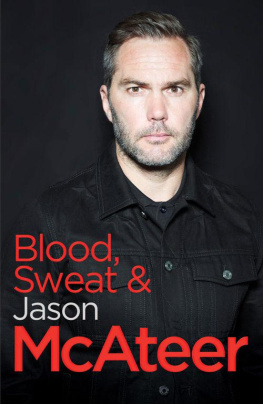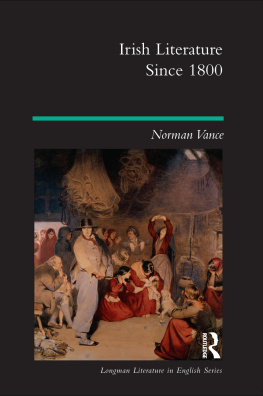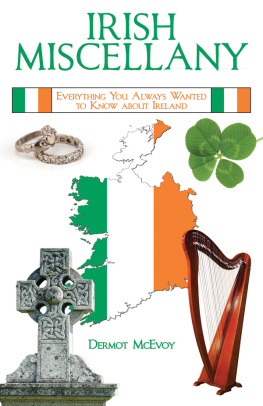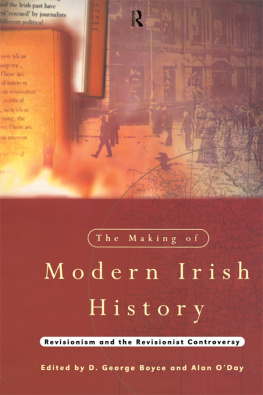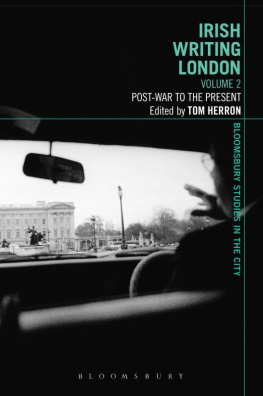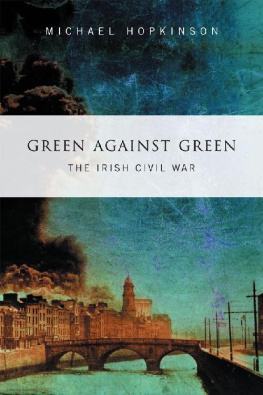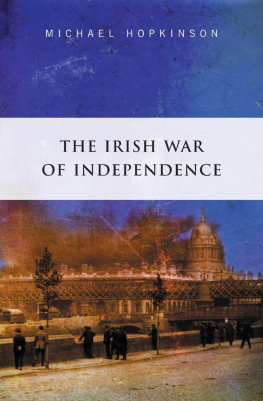Michael McAteer - Excess in Modern Irish Writing: Spirit and Surplus
Here you can read online Michael McAteer - Excess in Modern Irish Writing: Spirit and Surplus full text of the book (entire story) in english for free. Download pdf and epub, get meaning, cover and reviews about this ebook. year: 2020, publisher: Palgrave Macmillan, genre: Romance novel. Description of the work, (preface) as well as reviews are available. Best literature library LitArk.com created for fans of good reading and offers a wide selection of genres:
Romance novel
Science fiction
Adventure
Detective
Science
History
Home and family
Prose
Art
Politics
Computer
Non-fiction
Religion
Business
Children
Humor
Choose a favorite category and find really read worthwhile books. Enjoy immersion in the world of imagination, feel the emotions of the characters or learn something new for yourself, make an fascinating discovery.
- Book:Excess in Modern Irish Writing: Spirit and Surplus
- Author:
- Publisher:Palgrave Macmillan
- Genre:
- Year:2020
- Rating:3 / 5
- Favourites:Add to favourites
- Your mark:
- 60
- 1
- 2
- 3
- 4
- 5
Excess in Modern Irish Writing: Spirit and Surplus: summary, description and annotation
We offer to read an annotation, description, summary or preface (depends on what the author of the book "Excess in Modern Irish Writing: Spirit and Surplus" wrote himself). If you haven't found the necessary information about the book — write in the comments, we will try to find it.
Excess in Modern Irish Writing: Spirit and Surplus — read online for free the complete book (whole text) full work
Below is the text of the book, divided by pages. System saving the place of the last page read, allows you to conveniently read the book "Excess in Modern Irish Writing: Spirit and Surplus" online for free, without having to search again every time where you left off. Put a bookmark, and you can go to the page where you finished reading at any time.
Font size:
Interval:
Bookmark:
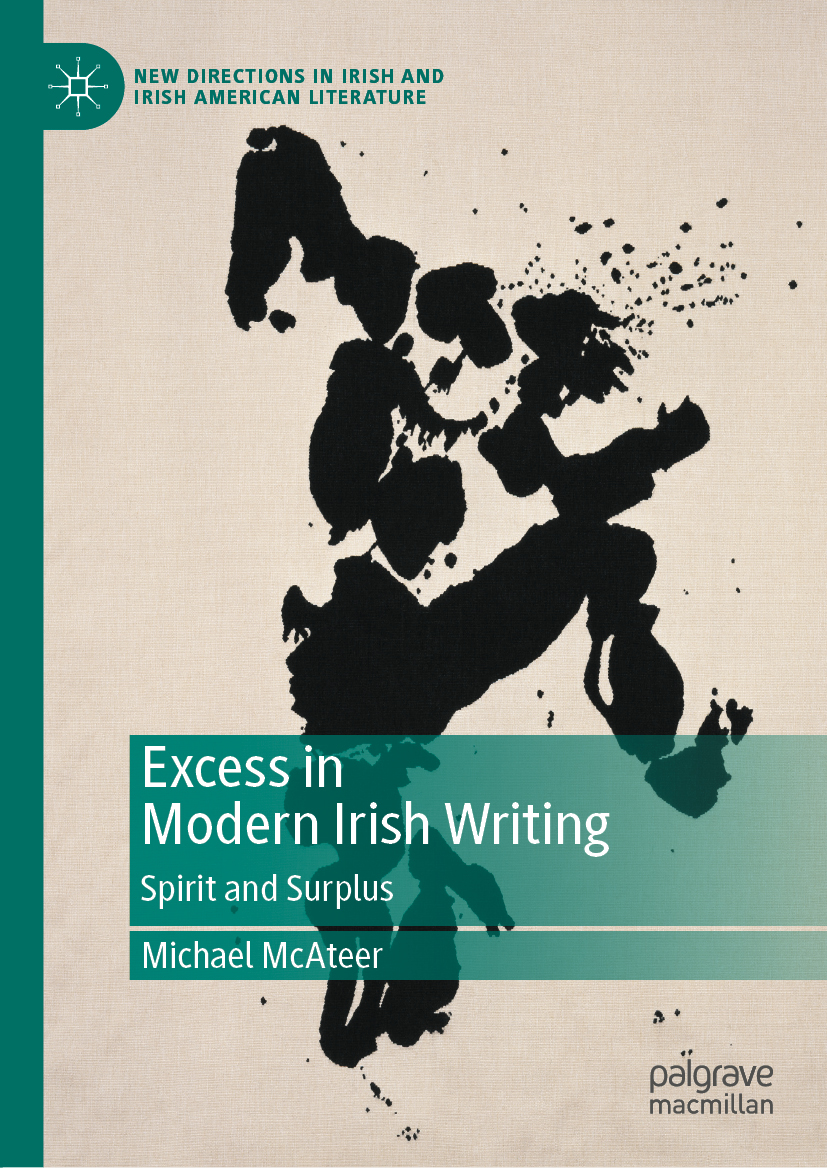
New Directions in Irish and Irish American Literaturepromotes fresh scholarship that explores models of Irish and Irish American identity and examines issues that address and shape the contours of Irishness and works that investigate the fluid, shifting, and sometimes multivalent discipline of Irish Studies. Politics, the academy, gender, and Irish and Irish American culture, among other things, have not only inspired but affected recent scholarship centered on Irish and Irish American literature. The seriess focus on Irish and Irish American literature and culture contributes to our twenty-first century understanding of Ireland, America, Irish Americans, and the creative, intellectual, and theoretical spaces between.
More information about this series at http://www.palgrave.com/gp/series/14747

Cover illustration: Louis le Brocquy,The Tin.Cchulainn in warp-spasm, 1969 Aubusson tapestry, 184 x 129 cm, Atelier Ren Duch Edition of 9 The Estate of Louis le Brocquy
This Palgrave Macmillan imprint is published by the registered company Springer Nature Switzerland AG
The registered company address is: Gewerbestrasse 11, 6330 Cham, Switzerland
For Tina,
Szeretettel
This book has its origins in some of the material that I taught as a lecturer in Irish Writing at the former School of English, Queens University Belfast, between 2002 and 2012. Working with old acquaintances and colleagues Eamonn Hughes, Fran Brearton, Sinad Sturgeon, Mark Phelan and the late Siobhn Kilfeather, I absorbed and questioned a range of ideas about modern Irish writing as it developed through the course of the twentieth century. Out of this I turned towards Alain Badious work,Being and Event, that was first published in English translation in 2006. I was struck by how one of the most important ideas in this work bore a direct relation to a particular perspective on Irish writing and culture that could be traced back to Matthew Arnolds influential writing on Celticism: the idea of excess. This idea gained renewed impetus during the 2000s with the dramatic acceleration of the Celtic Tiger economy in the Republic of Ireland (and also Northern Ireland), followed by the economic collapse of 2008 and subsequent rebooting of the financial-corporate system. The issue that arose for me against this backdrop was as follows. Is there a significant relation between the Arnoldian (and later Wildean) idea of excess and that of Badiou? Given the impact of Arnolds idea of Celtic excess and its subsequent transformation in the work of Oscar Wilde and W. B. Yeats at the end of the nineteenth century, does this connection reveal an important relation between excess in twentieth-century Irish writing and excess as a distinguishing feature of modernity in its twentieth-century phase? Situating Badious approach in the context of the idea of excess as it appears in modern philosophical thought from Hegel and Kierkegaard through to Marx, Nietzsche, Heidegger, Bataille, Adorno, Derrida and Sloterdijk, these are the questions with which my book is primarily concerned in its discussion of a broad range of works by major Irish-born authors through the course of the twentieth century.
Despite the persistent obstacles encountered, teaching Irish writing in Hungary since 2012 at the Institute of English and American Studies, Pzmny University, Budapest, has enriched my perspectives on Irish writing in its European contexts. This is so not just with regard to those writers like Joyce and Beckett who are well known for their move to the continent, but with equal regard to several other writers discussed in this book, writers who lived predominantly in Ireland or England. This enrichment is not just a result of different contexts that some students whom I have taught in Budapest have brought to Irish texts, Hungarian students in the main, but also students from surrounding countries and west Asia. I include among these Orsolya Szcs, Angelika Zheltysheva, Erzsbet Petrnyi, Klra Ladnyi, Gellrt Hujbert, Angela Sallai, Szfia Medgyessy and Zsuzsanna Balzs. Since 2015, I have taught Irish literature with my colleague Mrta Pellrdi as part of postgraduate seminars on Celticism, colonialism and Postcolonialism in Irish, Scottish and English literature during the nineteenth and the twentieth centuries. This has influenced some of the critical perspectives that I put forward in this book. The same also holds for the introduction course in twentieth century British and Irish literature that I have been teaching with Benedek Tta since coming to Budapest.
I appreciate the feedback given to an early draft of Chapterof this book at the Work-In-Progress seminar managed ably by Shakespeare scholar Natlia Pikli at the School of English and American Studies, Etvs Lornd University (ELTE) Budapest. In particular, I am grateful to Andrea Timr at ELTE for pointing me in the direction of the work of Peter Sloterdijk, a thinker who inflects the idea of excess with a different stress to that of Badiou. Responses from Gyz Ferencz, Ferenc Takcs and Dalma Vry have also been useful. In the course of writing this book, I have been struck by the enthusiasm for Irish literature that many scholars carry in Central and Eastern Europe. There is the long-vibrant Irish Studies scene at Prague driven by Ondej Piln, Clare Wallace and Justin Quinn. I have also encountered the admirable efforts of Aidan OMalley in Zagreb and Rijeka, Erika Mihlycsa in Clj/Kolosvr, Wit Pietrzak, Michael Lachmann and Katarzyna Ojrznyska at Ld, Leszek Drong at Katowice, Paul Fagan and Dieter Fuchs at Vienna and Stefan Pajovi at Novi Sad. My journey in writing this book in Budapest has been made rewarding in coming to know the Hungarian literary translator and Armagh native, Owen Good; modern Irish historian and Szeged native, Lili Zach; gender studies and Irish poetry scholar, Borbla Farag; Sadhbh De Barra and Zsuzsanna Kiss. It has also been enriched by the visits of various Irish writers and scholars to Budapest since 2013, especially Medbh McGuckian, Deirdre Madden, Glenn Patterson, Gearid MacLochlainn and Sorcha de Brn. The journey could not have been undertaken without the affection and companionship of my wife Eglantina. I dedicate this book to her indelible sense of fun; her ineffable patience; her love of frescoes, oil painting and figure skating; her saintly capacity to summon a smile when dealing with the delights of Hungarian administration.
Font size:
Interval:
Bookmark:
Similar books «Excess in Modern Irish Writing: Spirit and Surplus»
Look at similar books to Excess in Modern Irish Writing: Spirit and Surplus. We have selected literature similar in name and meaning in the hope of providing readers with more options to find new, interesting, not yet read works.
Discussion, reviews of the book Excess in Modern Irish Writing: Spirit and Surplus and just readers' own opinions. Leave your comments, write what you think about the work, its meaning or the main characters. Specify what exactly you liked and what you didn't like, and why you think so.

